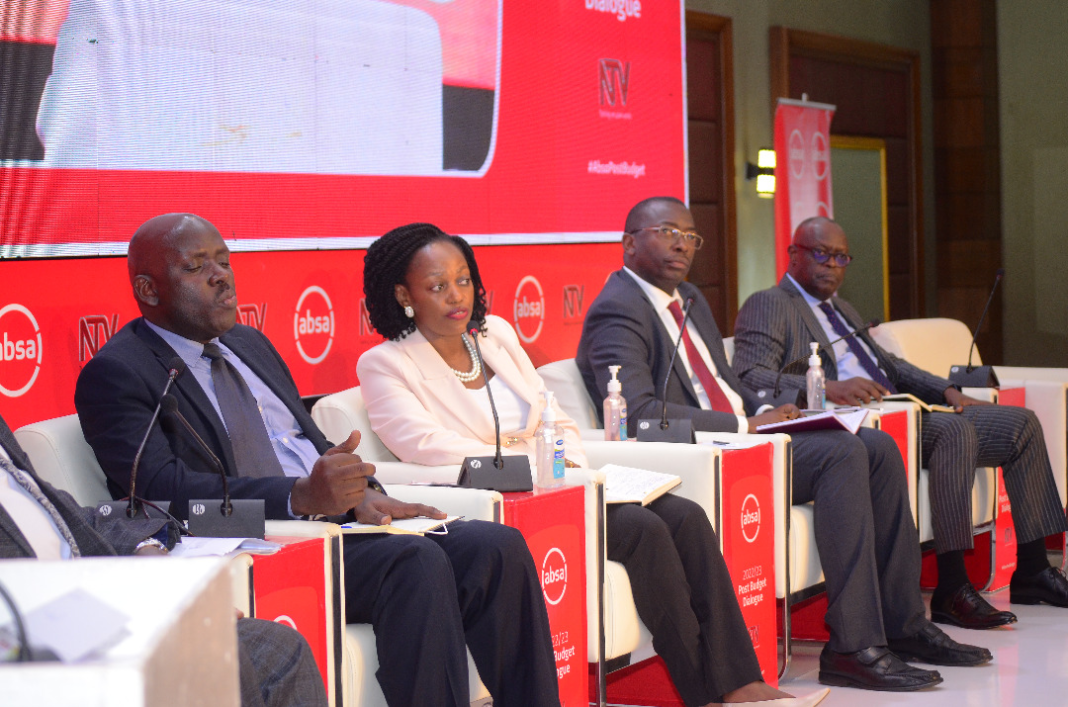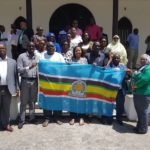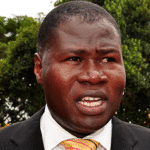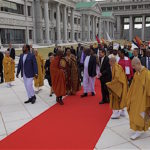On Tuesday the Minister of Finance Planning and Economic Development, Matia Kasaija presented Shs 48 trillion budget for 2022/2023 financial year, prioritizing security.
Under the theme ‘Full monetization of the Economy through commercial agriculture, Industrialization, market access and digital transformation’; Kasaija said the total resources available for government expenditure will be obtained from both domestic and external sources.
Speaking at the Post National Budget dialogue earlier today, Mr. Mumba Kalifungwa, Managing Director of Absa Bank Uganda said the budget came at a time when the country is facing economic disruptions created by Covid-19 the pandemic coupled with various external shocks including tighter global financial conditions, high inflation rates, elevated debt burdens and fiscal consolidation.
“As the Absa Bank, we are shall be investing where there is need be it Agricultural sector, tourism and risk management to boost economic recovery,” he said.
Mr. Patrick Ocailap, the Deputy Secretary to the Treasury, the budget is anchored on the National Development Plan (NDP) III. The Government intends to grow the economy and create wealth for more households. To achieve this Uganda Revenue Authority (URA) indents to collect Shs 23 trillion.
Since the government allocated Shs 100billion for Parish Development Model (PDM), the preaching should start from Parliament noting that they are going to be equipped with the essential elements that must be delivered to the parishes to galvanize support.
Given the economic situation in the country, Ocailap said the current strike against the shooting commodity prices is not necessary and advised the energy should be utilized to do other things and leave our youths in the centers to access Emyooga funds and boost their businesses.
Patience Rubagumya, Commissioner for Legal Services and Board Affairs at URA said the tax body would have loved new measures coming in to increase our collection. Following the outbreak of covid-19, a lot of businesses are struggling.
Since the reopening of the economy, March to May, the tax body has registered surpluses, showing the country’s economic resilience and recovery. Businesses are picking up slowly and we should be able to improve our performance.
“We need to create stability in the fiscal space. We have had complaints from our taxpayers that we need to create stability. I am glad that we did not change the tax regime this year. The tax compliance is really low. It is not just about the duty of URA to collect taxes, we need everybody to be in this conversation,” she said.
“I like the fact that URA has found a way to incorporate the collection of taxes from digital service providers to ensure that tax collections not only affect the consumers of their services but the providers as well.” Michael Segwaya, the Chief Finance officer of Absa bank said.
The next financial year, URA aims at collecting Shs 23 trillion, an increment of Shs 3 trillion. Segwaya said the increment in collections needs a lot of thinking on how the country will manage to balance tax collections in the current environment.
He said Uganda needs to sit down with our neighbors and get the value of the Democratic Republic of Congo (DRC) being part of the East African Community (EAC). Despite political instabilities, DRC has a big market for the rest of the EAC member states.
“We must facilitate agriculture to manage the climate change that is coming. We must keep wetland wet,” he said.
Mr.Patrick Ayota, the Deputy Managing Director of the National Social Security Fund (NSSF) the markets are inefficient. There are markets in Kenya but the inefficiency of it allows things to be blocked. Therefore Uganda needs to take this fight to where the market is.
Richard Mubiru, Director At Uganda Industries Manufacturing Association said the government should know that choices have consequences. “We need to make the choice of giving people money and let them be part of the money economy.







